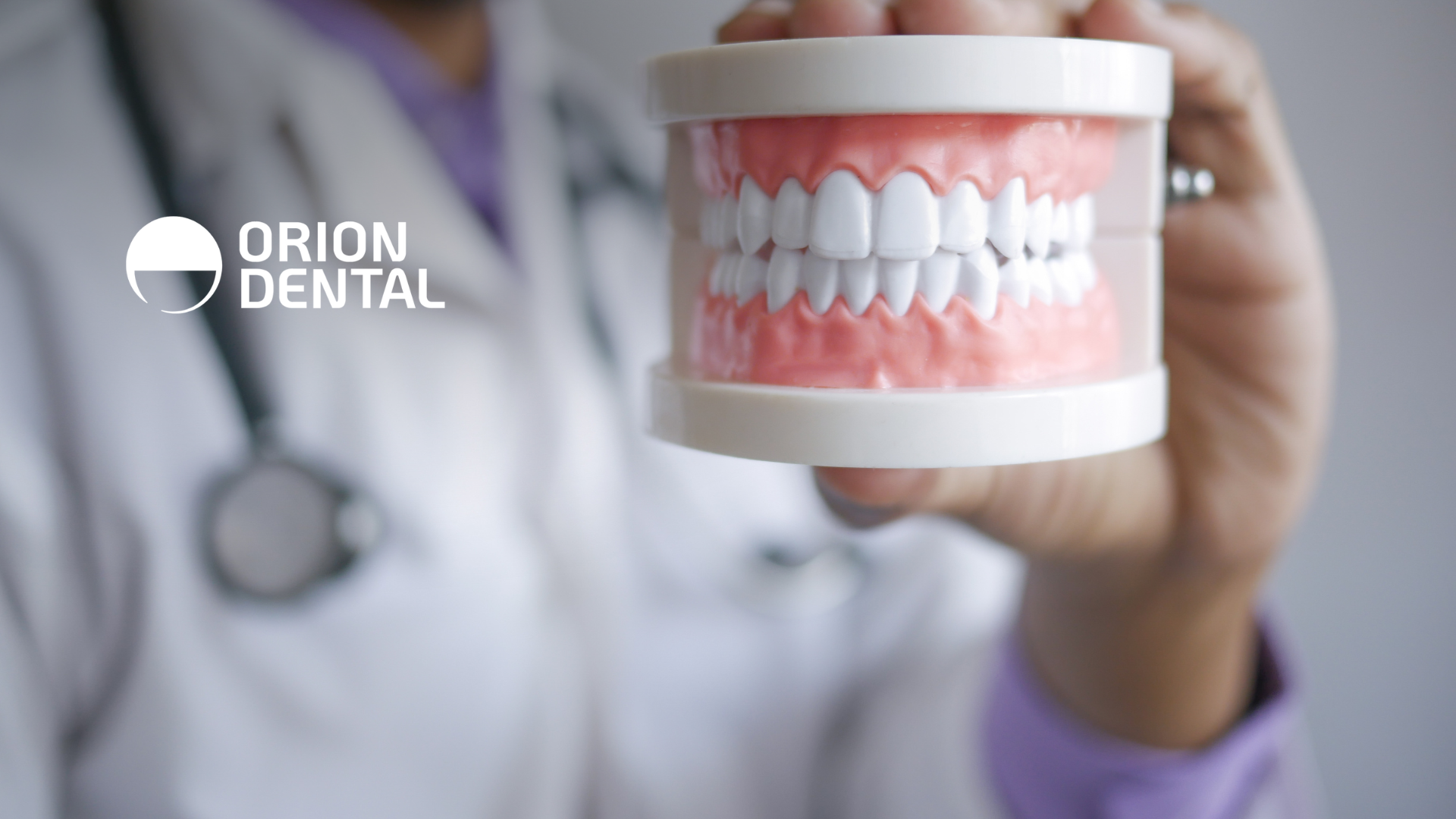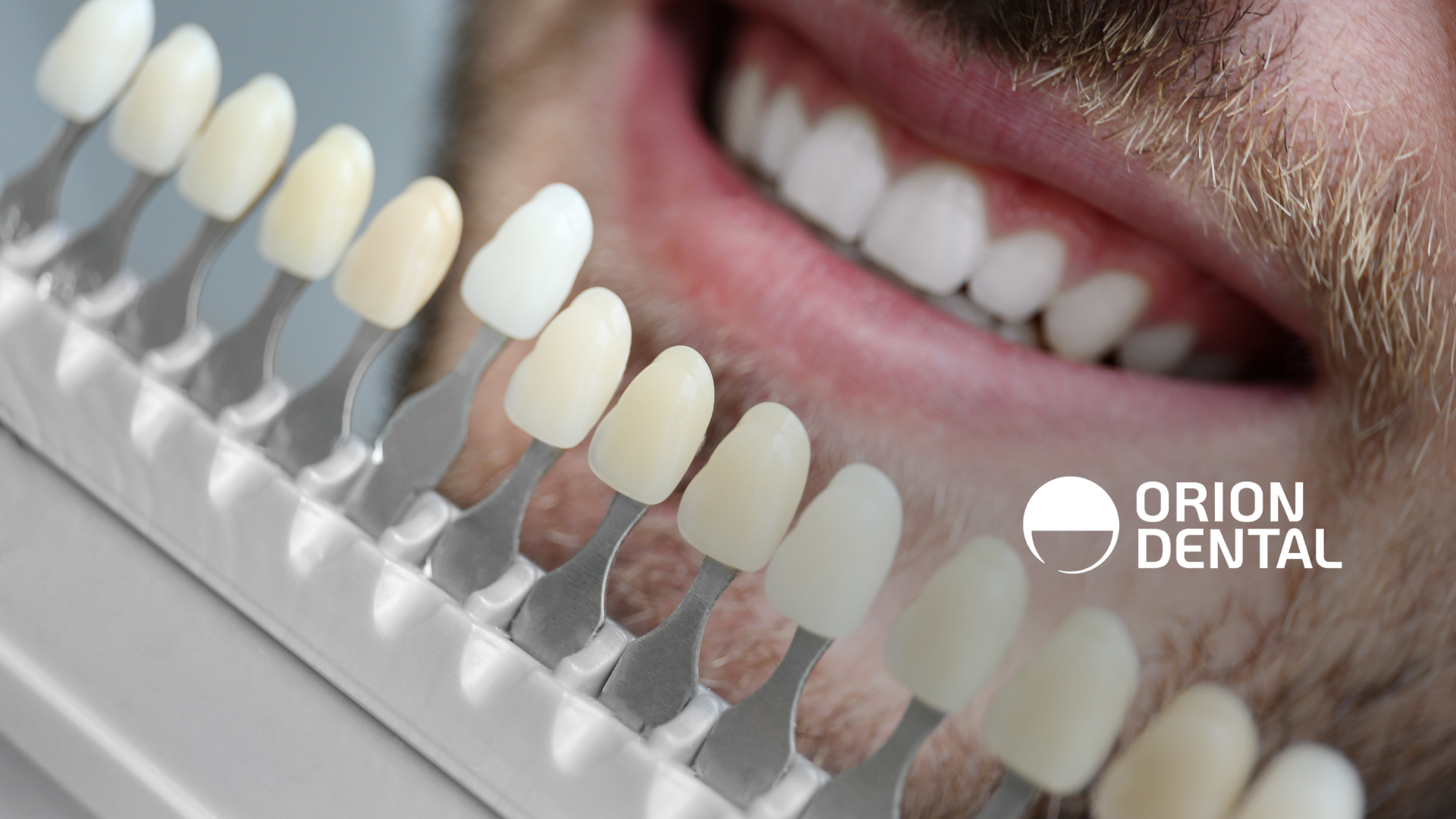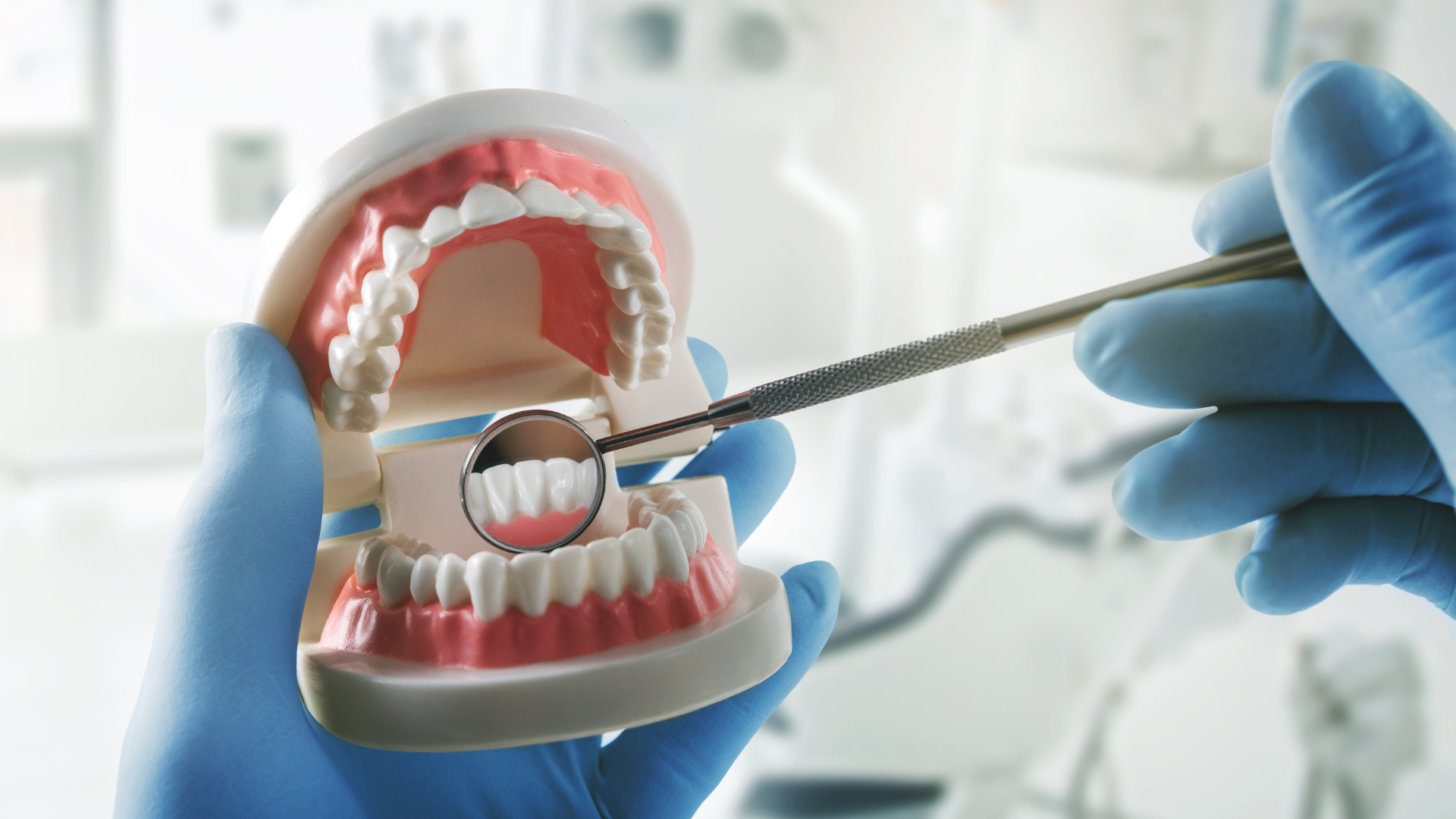Los Alamitos Dental Care - Do I Need a Root Canal?
Dental health is a crucial aspect of overall well-being, often underestimated until discomfort arises. Among various dental treatments, endodontic therapy, commonly known as a root canal, plays a pivotal role in addressing severe tooth pain and saving teeth that might otherwise need to be extracted. This treatment targets the inner pulp of the tooth, which can become infected due to decay, trauma, or disease, causing significant discomfort and potential health risks if left untreated.
Orion Dental stands at the forefront of endodontic care, offering patients state-of-the-art treatments that not only alleviate pain but also preserve natural teeth. With a team of highly skilled endodontic specialists, Orion Dental employs the latest in dental technology and techniques, ensuring that every procedure is as comfortable, efficient, and effective as possible.
The purpose of this blog is to shed light on the often-misunderstood realm of root canal therapy. We aim to equip the general public with the knowledge to recognize when a root canal might be necessary, understand the steps of the procedure, and realize the importance of expert care in this domain. By choosing a specialist like Orion Dental, patients can trust that they are receiving the highest standard of care, which is essential for the best outcomes in endodontic treatment.
What is a Root Canal?
Root canal therapy is a specialized dental procedure designed to treat problems of the tooth's inner pulp, a soft tissue composed of nerves, blood vessels, and connective tissues. This therapy is crucial in dental health for its role in saving teeth that would otherwise be lost to decay, infection, or injury. When the pulp becomes infected or inflamed, root canal treatment is often the only way to eliminate pain and prevent the spread of infection, preserving the tooth and maintaining the patient's oral and overall health.
The anatomy of a tooth is complex, consisting of several layers. The outermost layer, the enamel, is the hard, protective surface. Beneath the enamel is the dentin, a less dense substance that supports the enamel and transmits nerve signals. The innermost part, the pulp, lies within the root canals of the tooth, extending from the crown to the tips of the root in the jawbone. Root canal treatment specifically addresses issues within this pulp region, removing the infected tissue, cleaning the canal, and sealing it to prevent further infection.
As of January 2024, advancements in endodontic care have significantly enhanced the efficiency, effectiveness, and comfort of root canal treatments. Orion Dental has been at the forefront of adopting these advancements, utilizing cutting-edge technology such as digital imaging for precise diagnostics, advanced rotary instruments for quicker and more thorough cleaning, and biocompatible materials for filling and sealing canals. Techniques like sedation dentistry also make the procedure virtually painless, reducing anxiety and discomfort for patients. These technological and methodological advancements underscore Orion Dental's commitment to providing the highest standard of care, ensuring that patients receive the most modern treatments available in the field of endodontics.
Signs You Might Need a Root Canal
Recognizing the signs that may indicate the need for a root canal is crucial for timely intervention and can ultimately save a tooth that might otherwise be lost. The following symptoms are important to watch for, as they suggest underlying issues that root canal therapy may resolve:
Persistent Toothache
A toothache that refuses to go away can signal deep decay or damage to the tooth's pulp. The types of pain can vary significantly, ranging from a continuous dull ache to sharp, intense discomfort. Sensitivity to hot and cold foods or drinks is a common indication of nerve damage within the tooth. This sensitivity may start as a mild discomfort but can become more severe and last longer over time, even after the temperature stimulus is removed. Such symptoms suggest that the pulp, which contains the tooth's nerves and blood vessels, is inflamed or infected.
Swollen Gums
Swelling of the gums around a tooth, especially if accompanied by tenderness or pain, can indicate an infection that extends beyond the tooth itself into the surrounding periodontal tissues. This swelling might be localized to the area around one tooth or spread, suggesting that the underlying issue is severe enough to affect the gums. A root canal may be necessary to remove the infected pulp and prevent the spread of infection.
Tooth Discoloration
A tooth that becomes discolored—often turning gray, black, or yellow—can indicate that the pulp inside the tooth has died or is dying due to infection. Unlike external stains that affect the surface of the teeth, internal discoloration is a sign of more significant problems that a root canal can address by removing the infected or dead pulp.
Prolonged Sensitivity
When a tooth remains sensitive to hot or cold stimuli long after the initial exposure, it often means that the nerves within the tooth are damaged. This lingering sensitivity can be due to deep decay, a recent dental procedure, or physical trauma. A root canal treatment removes the damaged nerves, alleviating the pain and restoring the tooth's function.
Chipped or Cracked Tooth
Physical injuries that lead to a chipped or cracked tooth can create pathways for bacteria to enter the pulp chamber, leading to infection. Even if the injury doesn't immediately seem severe, bacteria can infiltrate the cracks over time, causing infection and necessitating a root canal to remove the infected tissue and seal the tooth from further harm.
Identifying these signs and seeking prompt dental consultation can prevent more severe complications, making awareness and timely action key to maintaining oral health.
Understanding the Root Canal Procedure
The root canal procedure is a detailed process that involves several steps, designed to remove infected or damaged pulp from inside a tooth, alleviate pain, and save the tooth from extraction. Orion Dental employs advanced pain management techniques and the latest technology to ensure the procedure is as comfortable and effective as possible.
Step 1: Diagnosis and Planning
The process begins with a thorough examination, including digital X-rays and possibly 3D imaging, to accurately diagnose the condition of the tooth's pulp and surrounding bone, identify the shape and number of root canals, and detect any signs of infection in the surrounding tissues. These advanced imaging techniques allow for precise planning of the root canal treatment by providing detailed visuals of the tooth's internal structures, ensuring that every aspect of the infection or damage can be addressed.
Step 2: Anesthesia and Pain Management
To ensure patient comfort, local anesthesia is administered to numb the affected tooth and surrounding area. Orion Dental utilizes the latest in pain management techniques, including options for sedation dentistry, to alleviate anxiety and minimize discomfort during the procedure. The goal is to make the experience as pain-free as possible, allowing patients to remain relaxed throughout the treatment.
Step 3: Accessing the Pulp
Once the area is numb, a small opening is made in the crown of the tooth to access the pulp chamber. This step is performed with precision to avoid affecting the tooth's overall structure more than necessary.
Step 4: Cleaning the Canal
Specialized instruments are used to remove the infected or inflamed pulp from the canal. The canal is then meticulously cleaned and shaped with tiny files to remove all traces of bacteria and debris, preparing it for sealing. Throughout this process, the canal may be flushed with disinfecting solutions to further eradicate any lingering bacteria.
Step 5: Filling and Sealing the Canal
After cleaning, the canal is filled with a biocompatible material, usually a rubber-like substance called gutta-percha, which is placed with an adhesive cement to ensure complete sealing of the canal. This step is crucial to prevent bacteria from re-entering the tooth and causing further infection.
Step 6: Restoring the Tooth
The final step involves restoring the tooth with a filling or crown for protection and to bring it back to full function. A crown is often recommended for teeth that have been extensively weakened by decay or the procedure itself, providing strength and preventing fracture.
Orion Dental's use of cutting-edge technology and materials, along with their expert care, ensures that the root canal procedure not only effectively addresses the immediate problem but also contributes to the long-term health and function of the treated tooth.
The Benefits of Root Canal Therapy
Root canal therapy offers several significant benefits, making it a crucial procedure for those suffering from tooth decay or infection that has reached the pulp. One of the primary advantages of this treatment is the relief of pain. By removing the infected or inflamed pulp, root canal therapy eliminates the source of discomfort, allowing patients to return to their normal activities without the constant distraction of tooth pain.
Another essential benefit is the removal of infection. The meticulous cleaning and disinfecting of the tooth's canal system eradicate bacteria, preventing further decay and the potential for abscess formation. This step is vital not only for oral health but also for overall well-being, as untreated tooth infections can spread to other parts of the body, leading to more severe health complications.
Perhaps most importantly, root canal therapy saves the natural tooth. In the past, a tooth with a diseased or infected pulp might have needed extraction. However, root canal therapy allows for the preservation of the tooth, maintaining the patient's natural bite, preventing the shifting of surrounding teeth, and avoiding the need for more complex dental procedures like implants or bridges.
Furthermore, by stopping the infection at its source, root canal therapy prevents it from spreading to neighboring teeth, safeguarding the health of the entire mouth. This aspect of the treatment underscores its importance in maintaining not only the health of the affected tooth but also that of the surrounding oral environment.
Recovery and Aftercare
Recovery from a root canal procedure is typically straightforward, with most patients experiencing minimal discomfort that can be easily managed. Here are some tips for a smooth recovery and ensuring the longevity of your treatment:
Managing Discomfort Post-Procedure
- Pain Management: It's common to experience some tenderness or mild discomfort in the treated area immediately following the procedure. Over-the-counter pain relievers, as recommended by your dentist, can effectively manage this.
- Avoid Chewing on the Treated Tooth: Until your follow-up appointment where a permanent filling or crown is placed, it's wise to avoid chewing on the treated tooth to prevent any damage or discomfort.
What Normal Recovery Looks Like
- Mild Swelling: Some patients might notice mild swelling or sensitivity in the gum around the treated tooth, which should subside within a few days.
- Gradual Decrease in Symptoms: Any pre-treatment pain or discomfort should gradually decrease over the days following the procedure.
The Importance of Follow-Up Visits
- Follow-up visits to Orion Dental are crucial to ensure that the tooth is healing correctly and to place a permanent restoration on the tooth. These visits allow the dentist to address any concerns early and confirm the success of the treatment. Long-Term Tooth Care Post-Root Canal
- Good Oral Hygiene: Continue with good oral hygiene practices, including brushing twice a day, flossing daily, and using an antiseptic mouthwash if recommended.
- Regular Dental Check-Ups: Regular check-ups and cleanings are vital to monitor the treated tooth and overall oral health.
- Protecting the Tooth: If a crown was placed, be mindful of avoiding hard foods that could damage the restoration. A night guard may be recommended if you grind your teeth.
By following these guidelines, you can ensure a smooth recovery and maintain the health and longevity of your tooth post-root canal. Remember, taking care of your treated tooth and continuing with regular dental visits are key to preventing future dental issues.
Choosing the Right Dental Care Provider for Your Root Canal
Orion Dental's dedication to using state-of-the-art equipment and materials ensures that each root canal procedure is as effective, efficient, and comfortable as possible. By choosing a provider with such a strong commitment to quality and patient satisfaction, you can feel confident in the care you receive and the durability of your root canal treatment
FAQs
Conclusion
Recognizing the symptoms that may indicate the need for a root canal is vital for timely intervention, which can prevent further damage and alleviate pain. Symptoms such as persistent toothache, sensitivity to hot and cold, swollen gums, tooth discoloration, and discomfort from chipped or cracked teeth should not be ignored. These signs suggest that the tooth's pulp may be infected or inflamed, necessitating professional evaluation and possibly a root canal treatment.
The benefits of timely root canal therapy cannot be overstated. This procedure not only relieves pain but also stops the infection from spreading, which can save the tooth and prevent the need for extraction. Preserving the natural tooth helps maintain the alignment of surrounding teeth, ensures proper chewing function, and supports overall oral health. Additionally, advancements in dental technology and techniques, especially at facilities like Orion Dental, have made root canal treatments more comfortable and successful than ever before.
Ultimately, understanding the importance of recognizing root canal symptoms and seeking prompt dental care ensures the best possible outcomes for dental health. Through expert care, such as that provided by Orion Dental, patients can look forward to a pain-free, healthy smile with minimal discomfort during treatment.










